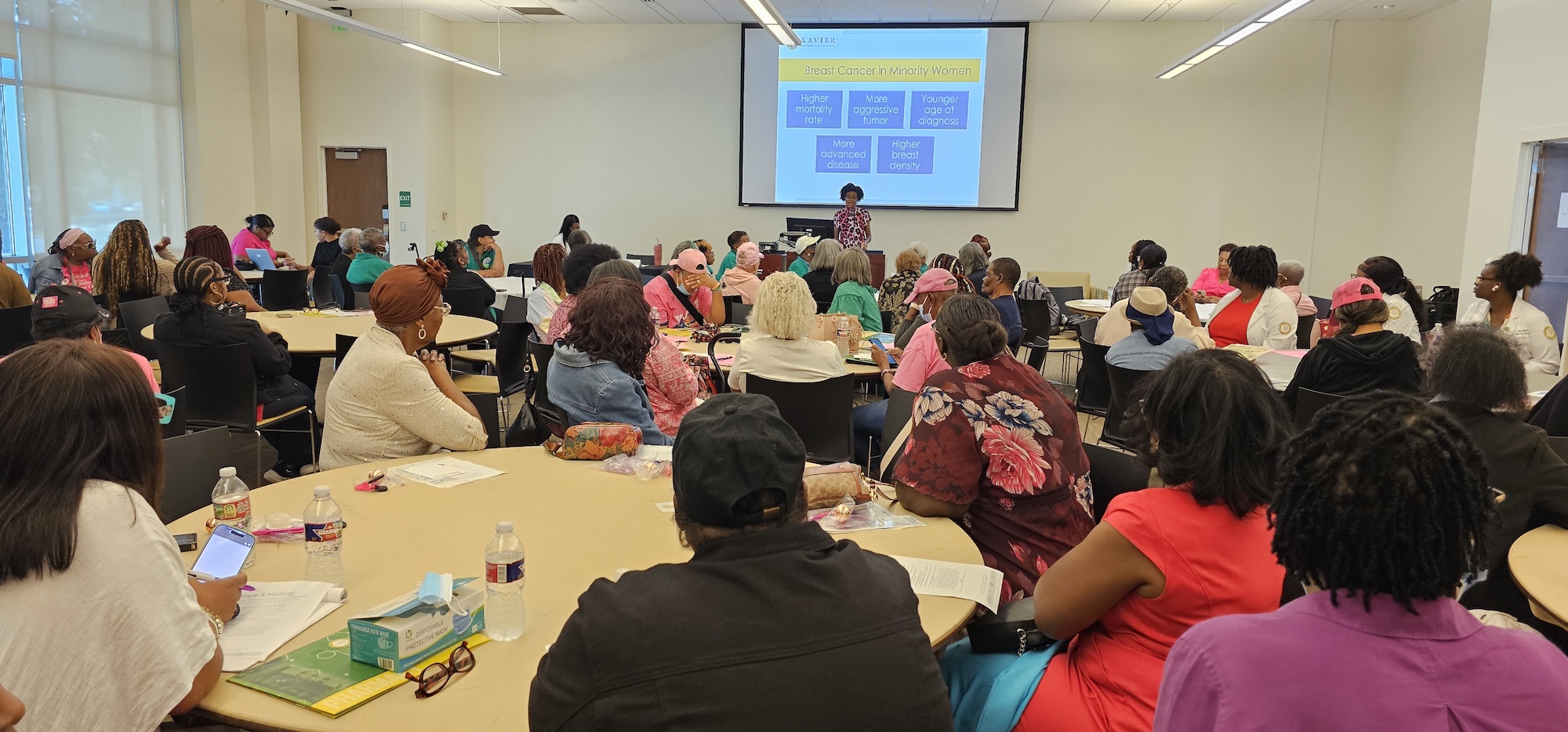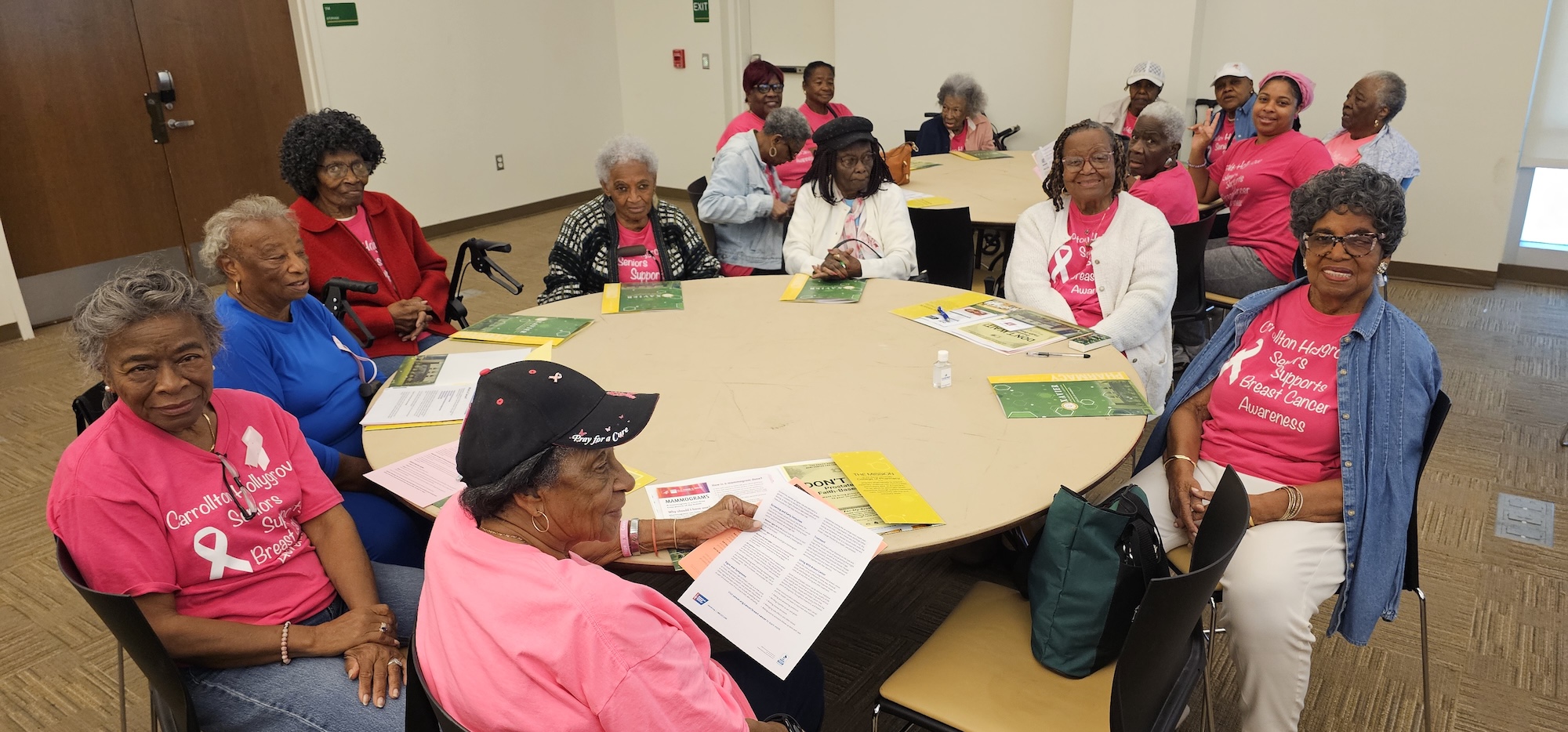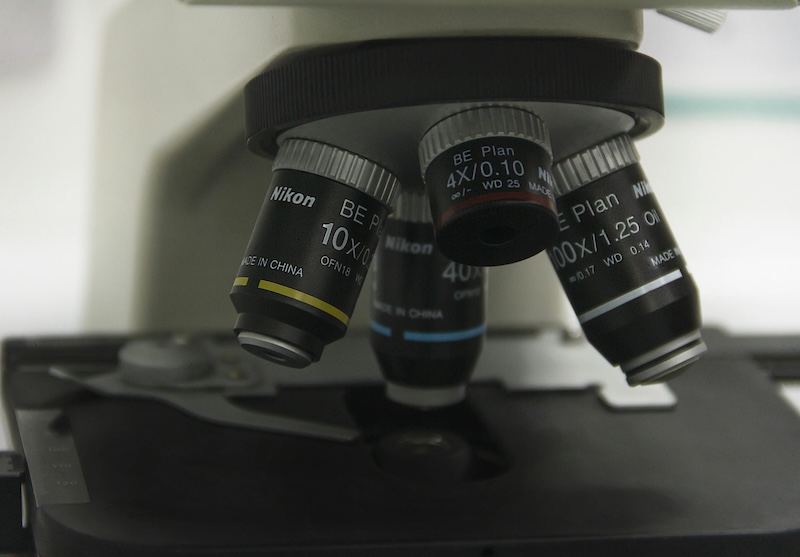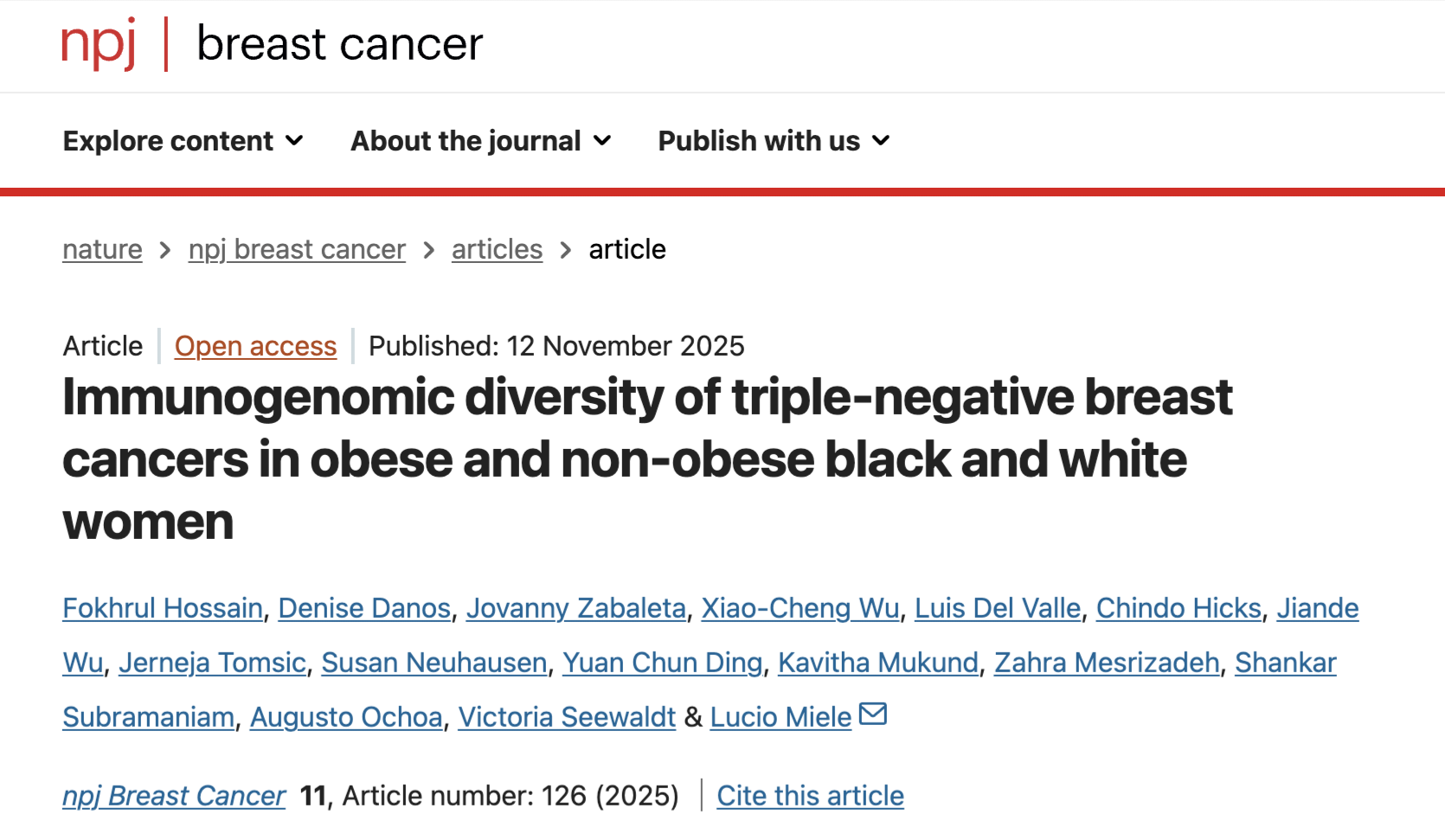
Educating Communities About Breast Cancer
More than 4,000 women will be diagnosed with breast cancer in Louisiana this year – making it the second most common cancer in the state, behind prostate cancer. While our statewide diagnosis rate is similar to the national average, Louisiana women are dying of breast cancer at a rate 14% higher than the national average.
They are taking this elevated breast cancer risk seriously, undergoing screenings higher than the national average. According to Jasmin Eugene, PharmD, BCOP, Xavier University of Louisiana, 74% of women from 2018 to 2022 were up to date on their mammograms compared to only 67% nationwide. “So we are doing something right,” Dr. Eugene told a roomful of women at the Hope and Healing Community Conversation hosted by Xavier’s Center for Minority Health and Health Disparities for Research and Education and sponsored by the Louisiana Cancer Research Center. “Louisiana has the third-highest screening rate in the country,” Dr.Eugene noted optimistically. “However, breast cancer impacts people differently.”
Dr. Eugene said Black women are 40% more likely to die from breast cancer than white women, despite having similar incidence and screening rates. Research is revealing a similar trend among Native American women. Minority women have higher mortality rates because they tend to have more aggressive tumors, such as triple-negative breast cancer, an aggressive cancer that is more difficult to treat.

That reality underscores the importance of regular mammograms. Denise Cox, BS, PN of the Louisiana Breast and Cervical Health Program, shared information on low and no-cost screenings for qualified applicants between the ages of 21 and 64. The organization, administered by the Louisiana State University School of Public Health, has patient navigators who can help steer women to screening appointments throughout the state.
October is Breast Cancer Awareness Month, and the event at Xavier University in New Orleans was just one of many to remind Louisianans of the resources that are available to prevent cancer. “Having events like these allows us to meet people where they are so we can have critical conversations to hopefully improve health outcomes,” said LaKeisha Williams, PhD, Co-Lead of LCRC’s Population Sciences & Disparities scientific program and associate professor at Xavier University of Louisiana’s College of Pharmacy.




